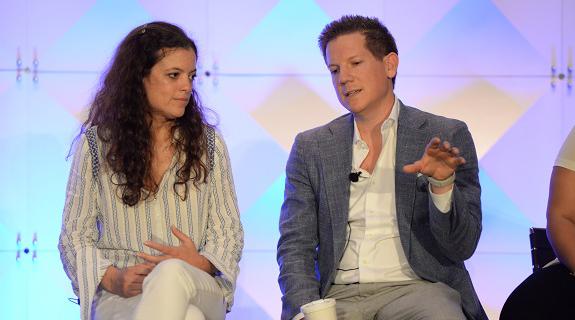Comedy has become the language of the internet. And with 90 percent of Americans under age 35 reporting that comedy is their preferred genre, it’s a language in which advertisers now need to be fluent. Comedy can address difficult subjects and break down barriers, argued Patricia Hadden, SVP of Digital Enterprises at NBCUniversal.
How has humor and comedy changed consumer behavior? Hadden posed this question at a session on “Comedy: The New Media Language” at PromaxBDA: The Conference 2016 on Wednesday.
Social media has altered the comedy landscape significantly, and opened a lot of doors for advertisers.
“There’s an enormous amount of shareability with comedy and now that we’re all on social media all the time, there’s that sort of added value to sharing something that makes you laugh,” said Jennifer Danielson, president of Above Average Productions.
Understanding comedy can be just essential for media companies whose chief focus isn’t comedy.
“For us, it’s even more important to think about how we can use levity, humor, comedy to get people to listen,” said Greg Gordon, head of production at Vox media. “When we’re trying to explain something or educate an audience or tell a compelling story, I want you to listen and that’s especially true when partnering with brands, too. We’re fighting for eyeballs and I think getting people to listen through comedy is a very important strategy,” he added.
And since comedy is a medium so at-home on social media, it’s important to think about platform and how to best to use it.
“As a producer and a creator, something I think about a lot is how to be really nimble in that process. In social media, you know really fast if it’s going to work, you know within the first 12-24 hours. It’s really changed my thinking in terms of how we brainstorm the creative the process,” said Trina Dasgupta of Single Palm Tree Productions.
Advertisers need to tap into how casual and fun the process has become thanks to social media and avenues such as SnapChat and Instagram, added Gordon. Knowing who your audience is and knowing that you won’t please everyone is an important part of the process, said Dasgupta.
Brands and advertisers are often taking a big risk when they decide to use comedy, so as a creator and a producer, it’s important to help them feel comfortable in the new language. Shane Rahmani, executive VP/ general manager, Electus Digital (the creators of CollegeHumor.com), shared the formula his company uses when approaching advertisers.
“For us, the goal is shareable, good content that is so good you immediately want to share it. When we work with advertisers, we think about three different things: We think first and foremost about the objective of the advertisers – what are their goals? Then we ask how can our brand and the way we speak to our audience play into some of those goals? And then we go for content that we know will be instinctively shared,” Rahmani said.
And how can up-and-coming comedians get on the radar of production companies and advertisers?
“I do feel that making stuff and putting it out there is the best way to get noticed,” said Danielson. “More and more, late night writers have been chosen off of their twitter feeds. It doesn’t have to be about massive numbers, it has to be about a continuous following,” she added.
[Image courtesy of Image Group LA]
Tags:













































__twocolumncontent.jpg)











